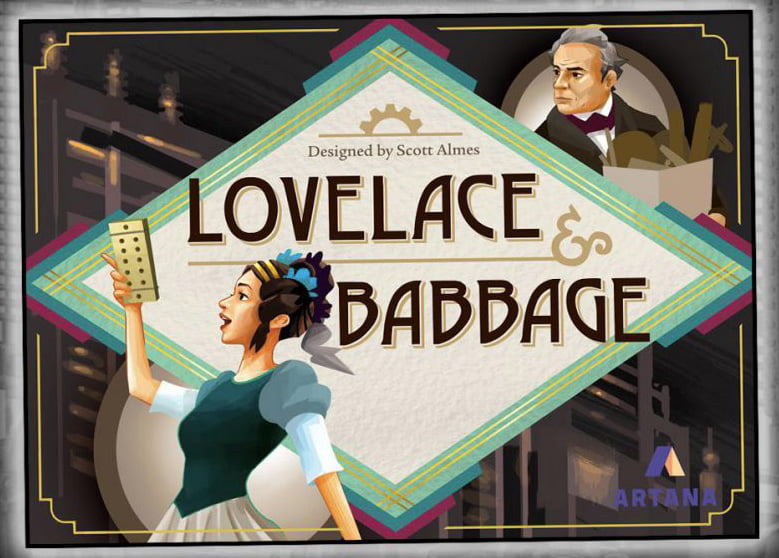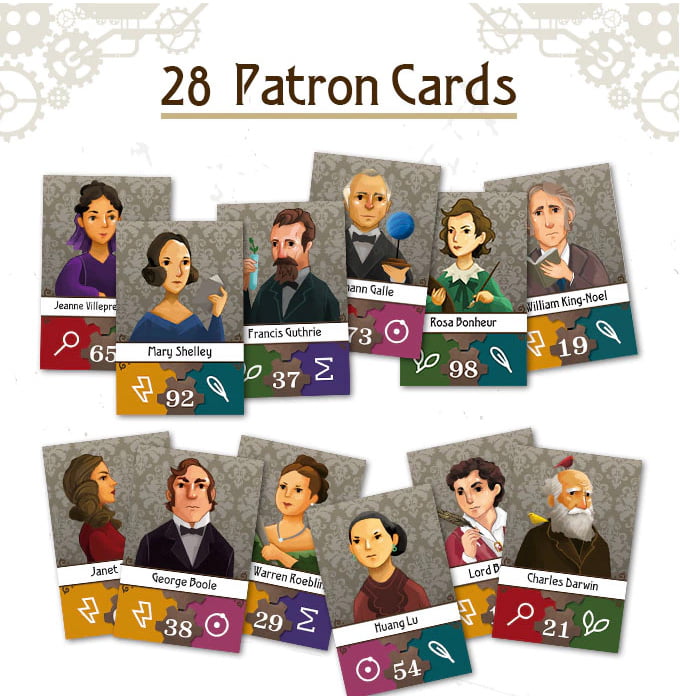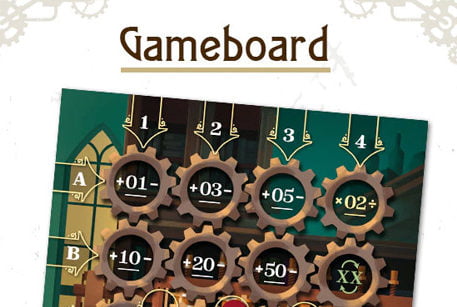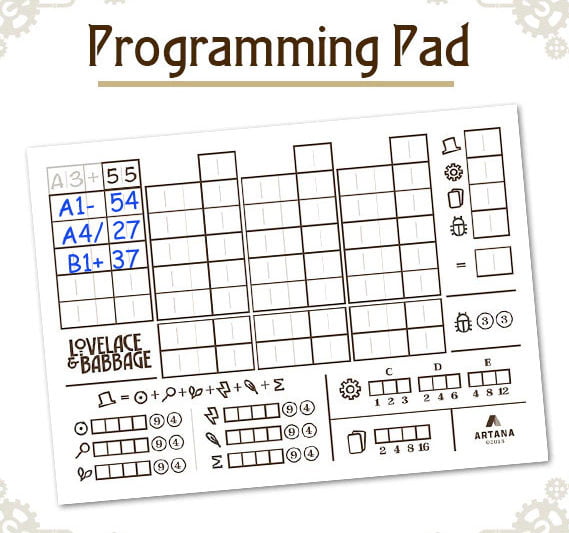On the Radar: Lovelace and Babbage (on Kickstarter)
Designer: Scott Almes || Publisher: Artana Games
We don’t usually talk about games we haven’t played but this one deserves some mention based on theme and educational mechanics. Trust us, you’ll see why.

Core Gameplay Overview
Lovelace and Babbage is a game surrounding mathematical operations. You manipulate numbers using a list of available operations, such as “multiply by 2” or “+/- 10”. You do this to manipulate your number to match numbers on the cards displayed.

Another board shows the list of operations available, such as, +\- 1, +\- 10, multiply/divide by 2, swap first and second digits, etc.

Each player gets a sheet of paper (the programming pad) with a starting number of “55”. In real time, all players race writing down which mathematical operations they will use to modify their number “55” to match one of the numbers on the cards. Then again to match another number on a different card. In the first round they can use 5 operations to match as many number cards as possible. This creates a list of operations, or an “algorithm”. First person done flips a timer giving the other players limited time to finish as well.

In the example above you can see I used operation “A1-” which subtracts one from 55, which achieves a match with the card “54”, then I use operation “A4 divide” to bring it to 27 (which doesn’t match any card), but I then use operation “B1+” to add 10, matching card “37”.
Next we go through each person’s first line of code to see if they correctly used an operation to reach a card number. If two or more players reached the same number at the same time on any line of code, only the fastest player to complete their entire algorithm achieves the card. Other players have a “malfunctioned” algorithm.
Everyone goes through each line of code one by one to see who achieved each card first. In future rounds you have longer algorithms (more lines of code) and more mathematical operations available at your disposal.
Why do we want to achieve the card numbers? Achieving a card grants you one of 6 symbols (check it off at the bottom of your sheet) and you get points for having collected the most of a certain symbol by game end. So in the end it’s a set collection system for scoring points.
Thematic History: Ada Lovelace, the first programmer
The theme focuses on real life historical mathematicians by which the game is named after. More primarily focusing on the works of female mathematician, Ada Lovelace, who worked with Charles Babbage on the first general-purpose computer. She published the first algorithm carried out by a computer and is this considered one of the first computer programmers.
Our Thoughts
What really catches our attention is the simple implementation of coding basics and mathematical operations into the gameplay. We believe a game like this has strong educational applications and can see this implemented as a high school activity. In elementary school we often had Connect 4 tournaments because it encourages planning ahead, anticipating future moves, and overall critical thinking. We can easily see a game like this being used in tournament settings as well. Particularly in high school math classes.
Both of us at Little Meeples are engineers by education and highly value games embracing STEM (Science, Technology, Engineering and Math). As mentioned, we have not played the game but highly anticipate introducing this to our children as they get older. Don’t get us wrong, this is not a “kids” game. There is more depth to the game than in our brief explanation of the core gameplay. Enough complexity to keep any adult entertained (as long as they like math). In fact, this game will get more love from adults than children, but without a doubt this is the type of game we would want to play with our kids as teens.
Lovelace and Babbage is currently on Kickstarter, behind a well established game designer and publishing company. The project is already funded, but if you find it as interesting as we did feel free to support them. We have no connection to the game or it’s designers but the ideas behind the game spoke to us so much we just had to share.

One thought to “On the Radar: Lovelace and Babbage”
Thanks for calling our attention to this one! I can definitely see us playing it with the kids when they’re older, and it really looks like something that would be a great addition to my math classroom as well!